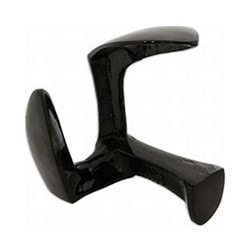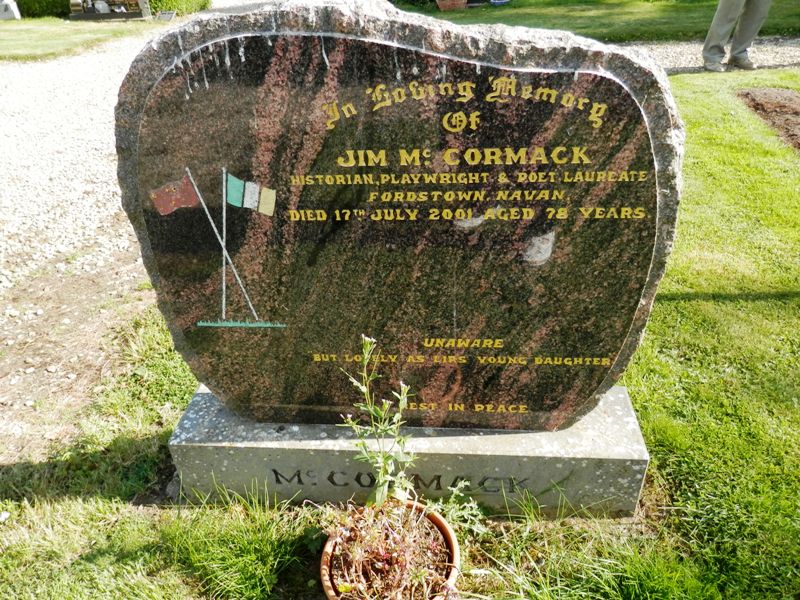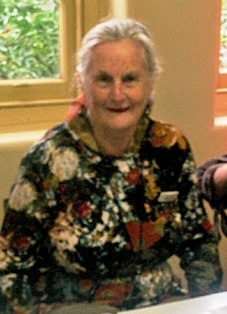Right here, right now I am thinking about ‘a slice of life’ from my childhood.’ I’m thinking of Saturday nights. The only other nights I can remember are the annual occasions of Halloweens and Christmas Eves, but it’s the Saturday nights I will write about.
Saturdays were busy days for our family. My father’s regular job didn’t require him to work that day, so it was an opportunity to attend to all the chores that needed doing at home. To help feed us, home grown produce was essential. Depending on the season there was digging, planting, and weeding. My siblings and I were required to help. For us children, weeding was a never-ending chore. My father loved gardening, but he had two hates in the garden, comfrey, and ‘scutch’ grass.
I don’t know why our garden was prone to producing comfrey. It didn’t grow anywhere else in the neighbourhood. It had not been planted by our family. My father would dig up the dreaded ‘weed’ and throw it over the fence onto the grassy area alongside the road, where it continued its prolific growth. People came from all over the county to dig it up as a remedy for rheumatism and for healing broken bones. They would often knock on our door asking if they could take some as if we were the it’s custodians.
What my father called ‘scutch’ grass had long tentacles that wormed their way under the soil into the garden beds. My sister, brothers and I had to pull them out. We grew to detest this pest as much as my father. He was very fussy about how the garden looked. When planting seed or seedlings, he used a line (a string attached to two pegs) to ensure the vegetables grew in straight rows.
Cutting and harvesting the turf (peat) for heating and cooking was our other main Saturday labour from spring through to autumn. My siblings and I loved being in the garden and on the bog. We often got fed up with the work, but we felt we were part of a resilient family. We knew some children whose families didn’t work and lived in dismal conditions.
When the Saturday work was done, we had our evening meal, and then the tin bath was placed in front of the fire. It was filled with hot water from the kettle and pots heating over the fire.
One by one, our mother washed our hair in an enamel basin of water using powdered Palmolive shampoo dissolved in a mug of hot water. Jugs of water were poured over our heads to rinse off the suds. First head shampooed was first into the bath. This was where the Lifebuoy carbolic soap came into its own. I loved the smell of that soap.
...
Right here in Benalla, right now there is an earthquake!
One hour later: This month’s prompt was very apt for this story. While writing the above the earth rumbled, the ground shifted, and the house shook – a 5.9 earthquake at 9.15am on 22 September 2021.
Our house was violently shaking. I was shaking. Sean was shouting “get out”. The dog was barking. The cat was running all over the place to find somewhere to hide. I was calling the cat. Never having experienced such a phenomenon before it caused uncertainty and was frightening. All is calm now.
My story - continued ...
While bath-time was happening, our father disappeared into the shed only to reappear when the bathing was over. Then he inspected everyone’s shoes. Out came the Nugget polish and polish brushes. He polished our shoes until they were gleaming. He would tell us stories of how soldiers had to have well-polished boots, not that he had ever been in the army.
He would also tell us how some people only polished the front of their shoes. They only half did the job. He said that when they were kneeling in church the unpolished heels were on display for all to see. This seemed to be his way of deciding who were competent workers. I sometimes glance at the back of shoes in church and think of my father.
When our shoes needed repairs his cobbler skills came into play. He was adept at mending our footwear. He had all the cobbling equipment needed for repairing worn shoes and boots – a cobblers last, a paring knife and an awl, hammer, brads, a sheet of rigid leather, hemp string, and a chunk of hard wax to coat the hemp.
My memories of Saturday nights in our home are of warmth, love, and safety.
Elizabeth Kearns
September 2021
P.S. When my husband read this, he laughed. His father polished his shoes while wearing them, so the backs didn’t get polished. When anyone commented he would say, ‘a good soldier never looks behind.’
It takes all kinds of people to make an interesting world.




 RSS Feed
RSS Feed
